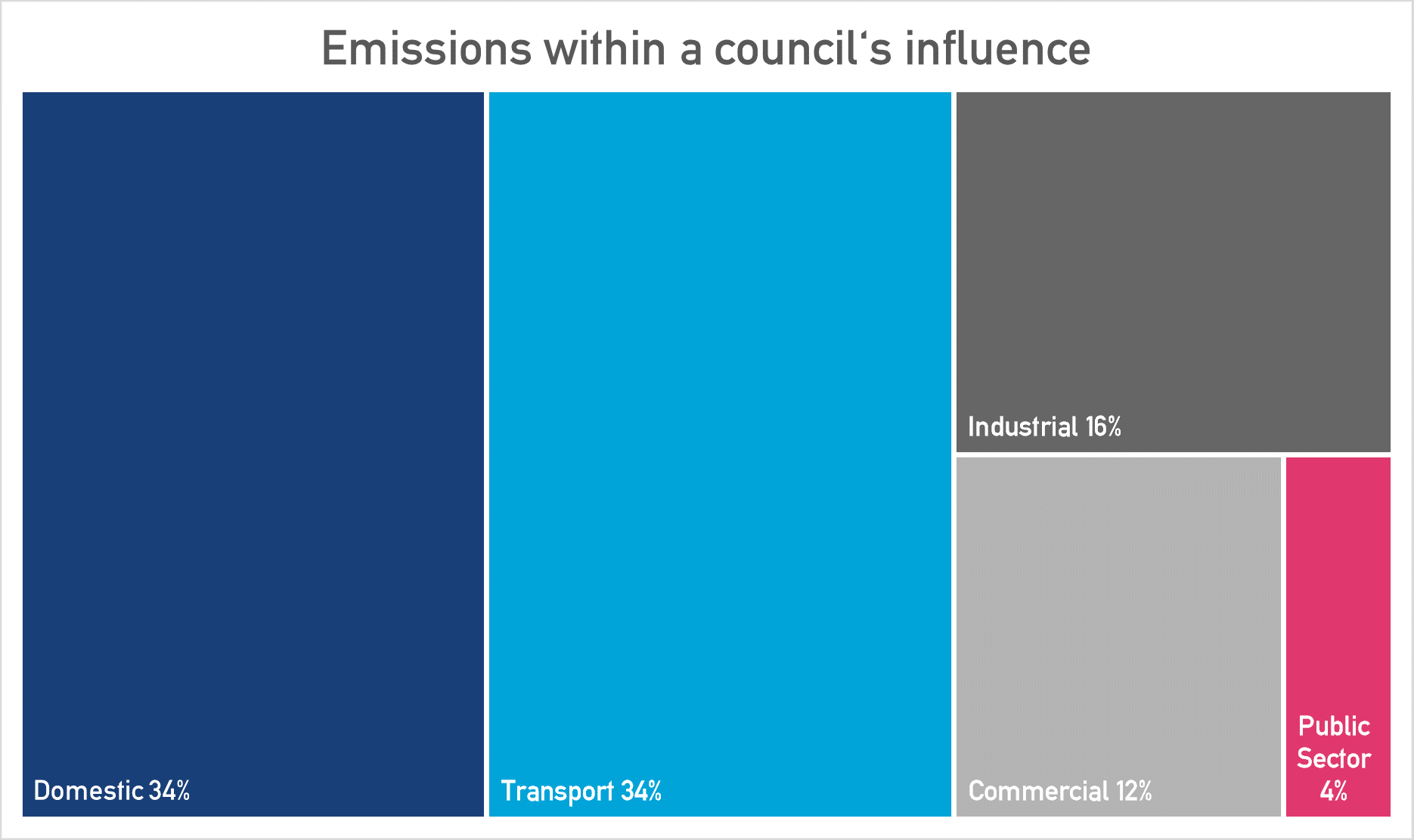As Zig Ziglar (the renowned American salesman and motivational speaker) once said, “the first step to solving a problem is to recognise that it exists”. Many councils have done just that in relation to global warming, with 300 of them having declared a climate emergency.
However, a much lower number have successfully turned this declaration into a detailed action plan – many are wrestling with the key question of how to achieve carbon reduction when only a small percentage is within their control. If the first step is recognise the problem of climate change, the second step is to ask the right questions in order to understand it. A quick look at the data shows that focusing on carbon emissions produced by the council and its activities is only going to make a small dent in emission levels. System leaders must tackle the impact of climate change across their local area.
Public sector emissions equate to (on average) only 4% of emissions that are within a council’s influence, and equate to over 10% in only seven councils in England. A much greater opportunity is provided by focusing on emissions from the transport and domestic sectors.

To help councils gain a better understanding of where to focus their activity, we have created a climate change module of the IMPOWER Index. This tool drills down into the relevant climate change data for every council in England, enabling them to understand both their current situation and future opportunities using four lenses:
- CO₂ emissions – trajectories of emission levels that councils can influence, and when these will hit zero if they remain on the current trajectory
- Transport –overall traffic reductions, active walking prevalence, and the shift to ultra-low emissions
- Green economy – investment to date in renewable energy and opportunities for new jobs in the low-carbon and renewable energy sector in the future
- Co-benefits – the social impact of climate change on areas such as mortality rates attributable to air pollution and fuel poverty
We are now using the climate change module of the IMPOWER Index to help councils develop their climate change action plans. Do get in touch if you’d like to know more.


